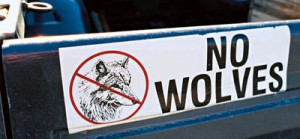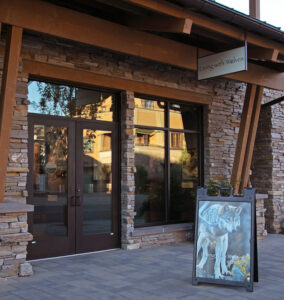Can Killing Wolves Make Things Worse?
Yes, it can. Killing wolves breaks up packs. Smaller packs have a harder time successfully bringing down large prey. Therefore, smaller packs are often forced to find prey that’s easier to kill, such as livestock.
When people hunt and trap wolves, packs are often broken up into smaller, dysfunctional groups. Based on our experiences with the Sawtooth Pack, the alpha leader is frequently the first to investigate disturbances in his territory. Alphas are also more apt to be killed as the largest “trophy animals.” Diminished packs, lacking the knowledge and leadership of experienced members, may turn to livestock for food, forced to find prey that’s easier to kill. 
When small packs hunt, usually at least one adult stays behind with the pups, putting pressure on fewer hunters that are not as capable of taking down large prey. The remaining pack members are also at a disadvantage when defending their kill from other powerful predators. Grizzly bears and other large predators often succeed in taking over a carcass. This forces the wolves to locate another animal and make another kill, putting more pressure on elk and deer.
Hunting for food is an effort that involves the entire pack. Different animals take
on different roles: selecting prey from the herd, tiring the animal, and bringing it down. The loss of key members with specific skills leaves crucial gaps in knowledge passed down through generations.


